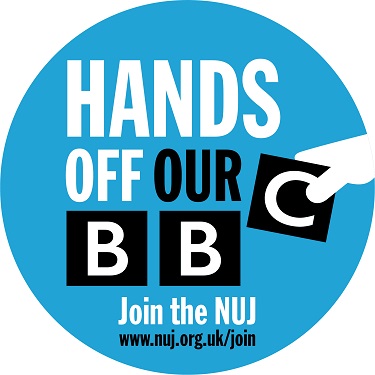As BBC starts charging over-75s for TV licence, NUJ says government must pick up bill
Michelle Stanistreet said the BBC had taken the only decision possible without inflicting further harm on the organisation.

© red engine
The NUJ has called on the government to pick up the bill for the TV licences for the over-75s.
This welfare provision should not be paid from TV licence payers' money. The BBC was forced to accept responsibility for the licence fee for the over-75s, who were exempt, in a behind closed doors deal with the government in 2015. The deal would have cost the corporation £1.3bn over five years, then £750m each year thereafter, rising to £1 billion by the end of the decade.
Following a public consultation, the BBC decided to pay the licence of over-75s who are in receipt of Pension Credit; at a cost of an £250m by 2021/22. Around 1.5 million households are eligible and 450,000 have already applied for a free licence.
The BBC has continued to pay for the TV licences during the pandemic, but this, and other Covid-related costs, have amounted to £125m. The delay cost more than £70 million and the corporation said it can no longer afford it without it having a further impact on its programming and services. It will now be writing to all over-75 households to say that from August 1, they will be expected to pay and will put payment plans in place.
The BBC has announced 450 jobs are to across England and 150 in Scotland, Wales and Northern Ireland. Planned cuts in News of more than 400 posts had been put on hold but the consultation process is expected to commence in the coming months. It has called on all staff to consider applying for voluntary redundancy. Announcing the redundancies, Lord Hall, director general, said the BBC now had 24 per cent less to spend on its UK public services than if the licence fee had risen with inflation over the past decade.
Michelle Stanistreet, NUJ general secretary, said:
"The BBC has taken the only decision possible without inflicting even further harm on the organisation, its staff and it's breadth of programming and content. Pushing the payment of a welfare benefit on to the BBC was always a cynical attack on the corporation, without any regard to how it would hamper its ability to fulfil its duties as a public service broadcaster. Nor about how forcing our public service broadcaster to make painful decisions which will adversely impact its relationship with the over-75s audience.
The present pandemic has proved how vital the BBC is for providing trusted information during a health crisis – particularly to the elderly and most vulnerable. People have flocked to the BBC because they need a reliable news source.
"The BBC has risen to the challenge in other ways – its local radio Make a Difference campaign has led to 800,000 listeners helping within their communities. It has offered health and fitness advice. BBC Food website provided collections of recipes especially for older people and low-income families.
"It offered families forced to home-school their children more BBC Bitesize content and a daily educational programme for different key stages. It livestreamed religious services. It increased its offering on iPlayer to entertain families stuck in at home. BBC Culture in Quarantine delivered a rich offering of online arts, music and theatre. This was public sector broadcasting at its best.
"To hobble the BBC is this way is, as one MP has already described, a piece of cultural vandalism. The government must face up to its responsibilities and fund the fee for the over-75s – and not make the BBC the villain of the piece as it will no doubt be portrayed."
BBC Media Centre: New Covid-safe TV Licence scheme for over 75s confirmed to start on 1 August
